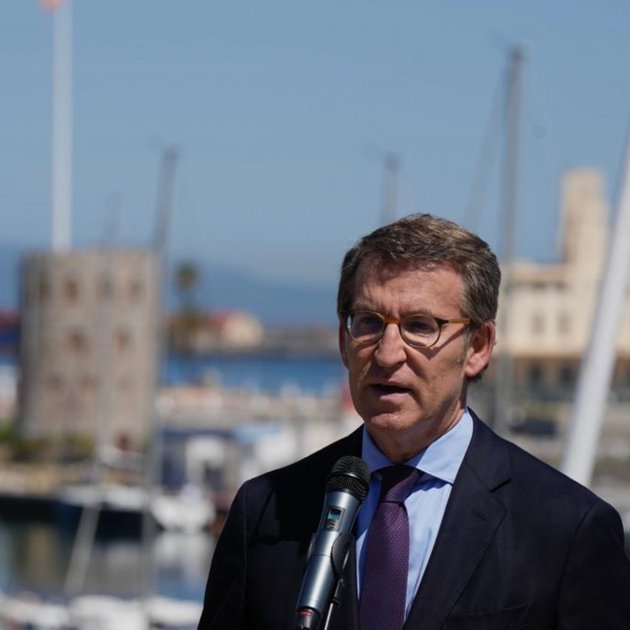Yesterday, the new People's Party (PP) led by Alberto Núñez Feijóo caused a certain amount of surprise when the party's general coordinator, Elía Bendodo, made statements in which he acknowledged that Spain "is a plurinational state", breaking with a line that had been set in stone. The plot twist lasted less than 24 hours, as Feijóo rushed in to correct the PP coordinator's words, which he labelled bluntly as an "error". "What Spain is has been defined by our history for 500 years, and Spain is very well described in Article 2 of the Constitution, which guarantees the indissoluble unity of the Spanish nation, the common and indivisible homeland of all Spaniards, and guarantees the right to autonomy of the nationalities that make it up". Yesterday, the Andalusian Bendodo had already clarified his own words, differentiating between "nation and nationality". But faced with all the controversy, Feijóo wanted to quickly put the issue to bed: "It's clear that Spain isn't a plurinational state, it is obvious, and there is no debate, and if you want to take advantage of an error, go ahead, but it has been quickly rectified", he said. "Spain isn't plurinational; it isn't and it won't be".
The words of the PP general coordinator have stirred up a lot of dust. The Ciudadanos' spokesperson in Congress, Edmundo Bal, considered Alberto Núñez Feijóo's PP to be on an "unfortunate path" of giving way to "nationalism" after assuming that the state is "plurinational". Bal criticized Feijóo for even speaking of a "Catalan nationality" on his visit to Catalonia; now, said the Cs politician, the number 3 of the party is seen to have also adopted the idea of plurinationality. For his part, the leader of far-right Vox, Santiago Abascal, regretted that the PP has demonstrated with these words that it "has little faith in the nation", and he expressed his "great concern" because the statements mean, in his opinion, that the PP is incapable of defending "neither our borders nor the rights and freedoms of Spaniards."
"Spanishness" message
Meanwhile, Feijóo also downplayed the recordings that El País has published between the former number two of the PP, Maria Dolores de Cospedal, and the former "dirty ops" police commissioner José Manuel Villarejo, as well as those maintained by the former Madrid regional leader Esperanza Aguirre with the contorversial police leader. "Our party is respectful of the rule of law and judicial investigations. If you want to bring up recordings from a decade ago, everyone has a right to do so, but our position is well known: we will continue to be respectful of investigations and court decisions that affect the PP, other parties or other institutions."
Feijóo made these demonstrations from Ceuta, where he wanted to send a "message of Spanishness" and defence of the territorial integrity of the state, coinciding with the first anniversary of the mass assault on the border by young would-be immigrants. The PP leader called for a strengthening of the Civil Guard and National Police contingents and greater collaboration with the Moroccan authorities.
